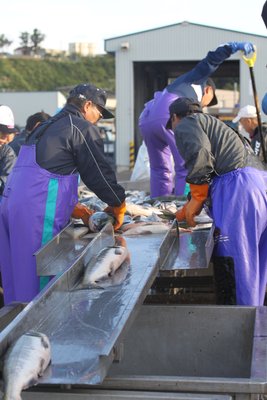
Heather Anne Swanson, a former postdoctoral researcher with the AURA project, received her Ph.D. in anthropology in 2013 from the University of California, Santa Cruz. Swanson’s research has focused on the making of salmon populations in Hokkaido, Japan, a region cast as “Japan’s frontier” and widely compared to the American West. Bringing together environmental history, political ecology, and evolutionary biology, Swanson asks how Japanese desires for legibly “modern” landscapes literally make their way into the bodies of fish. She is currently working on a book manuscript, titled Caught in Comparisons: Japanese salmon in an uneven world, that explores the specific role that practices of cross-cultural comparison have played in shaping salmon lives and landscapes. Recently, one of her papers based on this work, “Fishy Comparisons: Similarity, difference, and the making of salmon populations,” was awarded the 2013 American Anthropological Association Anthropology and the Environment Society’s Roy A. Rappaport Prize.
Swanson’s postdoctoral projects take her interests in Japanese landscapes and multispecies anthropology in new directions. She is both 1) developing a social and natural history of Hokkaido’s Yubari coal mining district, and 2) experimenting with laboratory research on otoliths, or fish ear bones, in an attempt to develop new methods and approaches for more-than-human fieldwork in the social sciences.